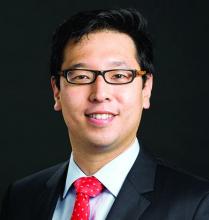The National Comprehensive Cancer Network (NCCN) and the University of Texas MD Anderson Cancer Center have awarded funding to investigators conducting a range of research projects looking at everything from chimeric antigen receptor T-cell therapy in lung cancer to financial toxicity to fecal microbiota transplantation.
Four researchers won funding through the NCCN Young Investigator Awards, which are supported by the NCCN Foundation, Astra Zeneca, Merck & Co., Genentech, Pfizer, and Incyte.
Prasanna Ananth, MD, of Yale Cancer Center in New Haven, Conn., won funding for her work investigating benchmarks for high quality end-of-life care in children with cancer.
Jaehyuk Choi, MD, PhD, of Northwestern University in Chicago won for his research investigating genomic determinants of response to immunotherapy in Merkel cell carcinoma.
Kedar Kirtane, MD, of Moffitt Cancer Center in Tampa won for his work on a digitized peer-to-peer patient support system for patients with locally advanced head and neck cancer who are receiving chemoradiation.
Yanming Li, PhD, of the University of Michigan in Ann Arbor won for network genome-wide association studies for early detection of cancers.
Meanwhile, the University of Texas MD Anderson Cancer Center named eight researchers to this year’s class of Andrew Sabin Family Fellows. Each researcher will receive $100,000 in funding over 2 years through a $30-million endowment from the Andrew Sabin Family Foundation.
Lauren Averett Byers, MD, is conducting research on the first chimeric antigen receptor T-cell therapy for small cell lung cancer.
Florencia McAllister, MD, is studying the intratumoral bacteria detected in pancreatic cancer patients and the use of fecal microbial transplants to improve treatment outcomes.
Jose Alejandro Rauh-Hain, MD, is attempting to improve gynecologic genetic testing and risk-reduction interventions in underserved populations.
Grace Li Smith, MD, PhD, is researching financial toxicity in patients with early-stage breast cancer who are treated with short-course versus standard adjuvant radiation.
Ishwaria Mohan Subbiah, MD, is investigating a personalized, technology-enhanced symptom-management strategy to provide holistic care for patients on phase 1 trials.
Andrea Viale, MD, is studying the effects of transient inflammation and the role of epithelial memory during progression of pancreatic ductal adenocarcinoma.
Linghua Wang, PhD, is investigating TIM-3 as a potential target for treating peritoneal carcinomatosis in patients with advanced gastric cancer.
Yinghong Wang, MD, PhD, is researching fecal microbiota transplantation as an option for managing immune-mediated colitis following cancer immunotherapy.
Movers in Medicine highlights career moves and personal achievements by hematologists and oncologists. Did you switch jobs, take on a new role, climb a mountain? Tell us all about it at hematologynews@mdedge.com, and you could be featured in Movers in Medicine.




